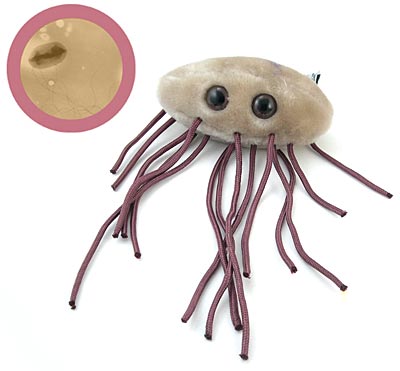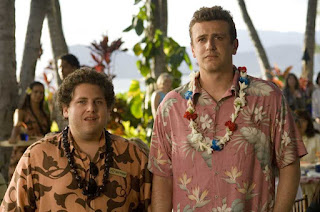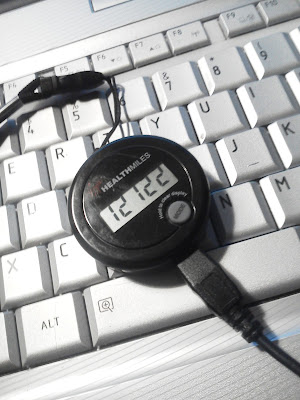Antigermophobe. If There Is Such A Thing.
Let's talk about germs.
There has been a massive shift in recent years to an abject fear of germs as a whole. When I was growing up, my mother was not afraid of letting us play in the mud. [I have stories.] We were taught to wash our hands but we were not raised with any fear of getting particularly sick. Mom kept the kitchen clean and encouraged us to help her. Dad ... well, he just wasn't worried about much, except maybe if we got in the way when he was moving something heavy. (Or using a table saw. Which seems fair.)
And believe it or not, we all turned out fine. Or at least we're all healthy. (The rest is admittedly up to opinion.)
In the last month, the school in my home district has had a major problem that goes by the name cryptosporidium. For those who don't read about such things for fun [... yeah, definitely up to opinion], crypto is a protozoa (little bug that's bigger than a bacterium but smaller than, say, most algae cells) that causes all sorts of intestinal issues, especially in kids and people with compromised immune systems. It's nasty stuff, the kind of thing that turns up most frequently in drinking water that draws from a surface source. And it's tough to kill, as most intestinal parasites are.
So when a bunch of kids suddenly come down with cryptosporidiosis ... well.
The problem, it seems, goes back to reliance on a product that I happen to loathe. And that's why I called you here today.
Let me make this clear: Hand sanitizer is not a substitute for proper hand washing!!
I know you know this. I know you've heard it at the very least. But grant me my rant and then we'll all go home, okay?
Hand sanitizer (usually alcohol-based) is a quickly evaporating substance that kills 99.9% of germs on hard, nonporous surfaces. This means that (a) these results are not based on the intended target (healthy human skin) and (b) at best you get to drop three zeros from the total number of germs you had before. Which, by the way, was in the billions.
Now, in order for a proper disinfectant to truly work, it needs proper contact time or intense strength. Bleach works based mostly on strength; products like Lysol recommend up to ten minutes of contact time. Hand sanitizer has neither of these. This means that while it is killing something, it's not killing the germs that scare most people.
Like E. coli.
Or cryptosporidium.
Or salmonella.
These are the pathogens that are best fought with mechanical cleaning, very high heat, or hospital-grade disinfectants. Since I'm guessing you'd rather not dip your hands in bleach (please don't) or boiling water, this leaves washing your hands.
Washing works because it involves soap -- a surfactant -- which helps to pick up dirt, germs, oil, and all the other junk your skin acquires between washings. The longer you can scrub, the better. (Around here, we tell kids to scrub as long as it takes them to sing their ABCs twice.)
Hand sanitizer, at best, can be a follow-up step (which is how it's used in hospitals) but without washing, mostly just serves to dry out your hands.
Please. Help me end the madness. And for crying out loud, don't try to substitute a good habit with a quick fix that doesn't actually work.
Hm. That's probably a good rule for life. I should get back to unpacking those boxes in my garage...
There has been a massive shift in recent years to an abject fear of germs as a whole. When I was growing up, my mother was not afraid of letting us play in the mud. [I have stories.] We were taught to wash our hands but we were not raised with any fear of getting particularly sick. Mom kept the kitchen clean and encouraged us to help her. Dad ... well, he just wasn't worried about much, except maybe if we got in the way when he was moving something heavy. (Or using a table saw. Which seems fair.)
 |
| This is the first time I've ever wanted E. coli. ThinkGeek is awesome. |
In the last month, the school in my home district has had a major problem that goes by the name cryptosporidium. For those who don't read about such things for fun [... yeah, definitely up to opinion], crypto is a protozoa (little bug that's bigger than a bacterium but smaller than, say, most algae cells) that causes all sorts of intestinal issues, especially in kids and people with compromised immune systems. It's nasty stuff, the kind of thing that turns up most frequently in drinking water that draws from a surface source. And it's tough to kill, as most intestinal parasites are.
So when a bunch of kids suddenly come down with cryptosporidiosis ... well.
The problem, it seems, goes back to reliance on a product that I happen to loathe. And that's why I called you here today.
Let me make this clear: Hand sanitizer is not a substitute for proper hand washing!!
I know you know this. I know you've heard it at the very least. But grant me my rant and then we'll all go home, okay?
Hand sanitizer (usually alcohol-based) is a quickly evaporating substance that kills 99.9% of germs on hard, nonporous surfaces. This means that (a) these results are not based on the intended target (healthy human skin) and (b) at best you get to drop three zeros from the total number of germs you had before. Which, by the way, was in the billions.
Now, in order for a proper disinfectant to truly work, it needs proper contact time or intense strength. Bleach works based mostly on strength; products like Lysol recommend up to ten minutes of contact time. Hand sanitizer has neither of these. This means that while it is killing something, it's not killing the germs that scare most people.
Like E. coli.
Or cryptosporidium.
Or salmonella.
These are the pathogens that are best fought with mechanical cleaning, very high heat, or hospital-grade disinfectants. Since I'm guessing you'd rather not dip your hands in bleach (please don't) or boiling water, this leaves washing your hands.
Washing works because it involves soap -- a surfactant -- which helps to pick up dirt, germs, oil, and all the other junk your skin acquires between washings. The longer you can scrub, the better. (Around here, we tell kids to scrub as long as it takes them to sing their ABCs twice.)
Hand sanitizer, at best, can be a follow-up step (which is how it's used in hospitals) but without washing, mostly just serves to dry out your hands.
Please. Help me end the madness. And for crying out loud, don't try to substitute a good habit with a quick fix that doesn't actually work.
Hm. That's probably a good rule for life. I should get back to unpacking those boxes in my garage...


Comments
Second - Chris got me the "love pack" from Think Geek for Valentine's day a few years ago. All the little baby STDs germs a girl could ever want. :)